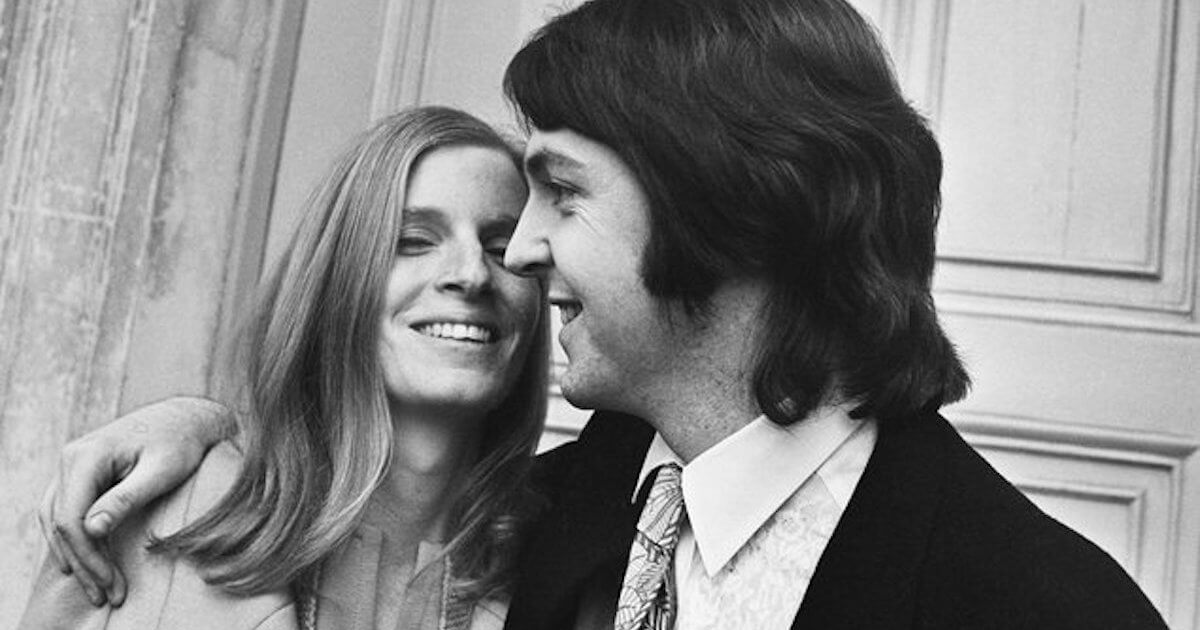Keeping Memory Alive
- Legendary rocker Paul McCartney recently remembered the late Linda McCartney on what would have been her 80th birthday.
- Linda passed away at age 56 in 1998 after a battle with breast cancer.
- Over the last twenty years, there has been extraordinary progress in breast cancer treatment, much of which involves drugs that attempt to use the specific features of a woman’s cancer to tailor treatments. These features include the genetic makeup of the cancer and the hormonal and molecular features that power the cancer.
- 90% of women with breast cancer now live. That’s an improvement but progress is urgently needed.
Related: Remembering Paul McCartney's Late Love Linda McCartney Who Died of Breast Cancer at 56
Read MoreView this post on Instagram
Linda’s Breast Cancer Battle
Linda was diagnosed with breast cancer in 1995, and by the time she was diagnosed, the diseas had already spread to other areas of her body. She had treatment after first getting diagnosed and it had appeared to have gone well, according to a family spokesperson at the time of her death via Variety. "But unfortunately in March, it was found that it had gone to her liver."
Related: When Should I Get a Mammogram?
Two days before her death, Linda was riding horses with Paul. “The blessing was that the end came quickly and she didn't suffer," the spokesperson said. Husband Paul asked that in lieu of flowers, people honor Linda with a donation to cancer research or animal welfare charities or simply “go veggie." (Linda was a noted vegetarian.)
Related: What is a BRCA Mutation?
Since 1998 when she passed, the way doctors view breast cancer has evolved. It’s now thought of as not just one, but as many diseases. Women are evaluated for genetics, hormones, and also molecular features. Genetic makeup, such as possessing the BRCA 1 or BRCA 2 gene mutation, is an influencing factor for people with breast cancer, or those with a higher risk factor of the disease.
Handling Fear When You Get the Diagnosis
Breast Cancer Advances
90% of women who get breast cancer now live. Despite the huge trauma of the disease, it's an amazingly hopeful and exciting field, says SurvivorNet Medical Advisor, Dr. Elizabeth Comen. These days it's not just about the stage of of your breast cancer. Hormones, biology, and genetics should all play a role in determining your treatment.
When your doctor is determining the treatment for your particular cancer there are many considerations that factor into the decision. For example: what is the size of the tumor, and are lymph nodes or other parts of the body involved? The biology of your tumor is also important: is your tumor positive for the HER2 receptor or hormone receptors? Did you inherit an increased risk for breast cancer and/or did your lifestyle increase your risk?
There are so many different ways to treat and target breast cancer today. Oncologists have many routes to go and many options no matter what stage the diagnosis.
When a Spouse Has Cancer
When a spouse gets cancer, it can be the litmus test for the strength of the relationship revealing cracks, or strengthening existing bonds. This is how actress Jill Kargman feels about cancer.
In a previous interview, she says, “I think cancer is a great way to find out if you’re with the love of your life or a shithead. I think it presses the fast forward button on getting to the bottom of that answer, because a lot of people in middle age are kind of at a crossroads, waiting for their kids to fly the coop.”
“And I think if you’re with someone who is not supportive and kind of emotionally checked out or doesn’t tell you you’re still beautiful with that, this might not be your person,” says Kargman.
Jill Kargman on Relationships and Cancer
Learn more about SurvivorNet's rigorous medical review process.


